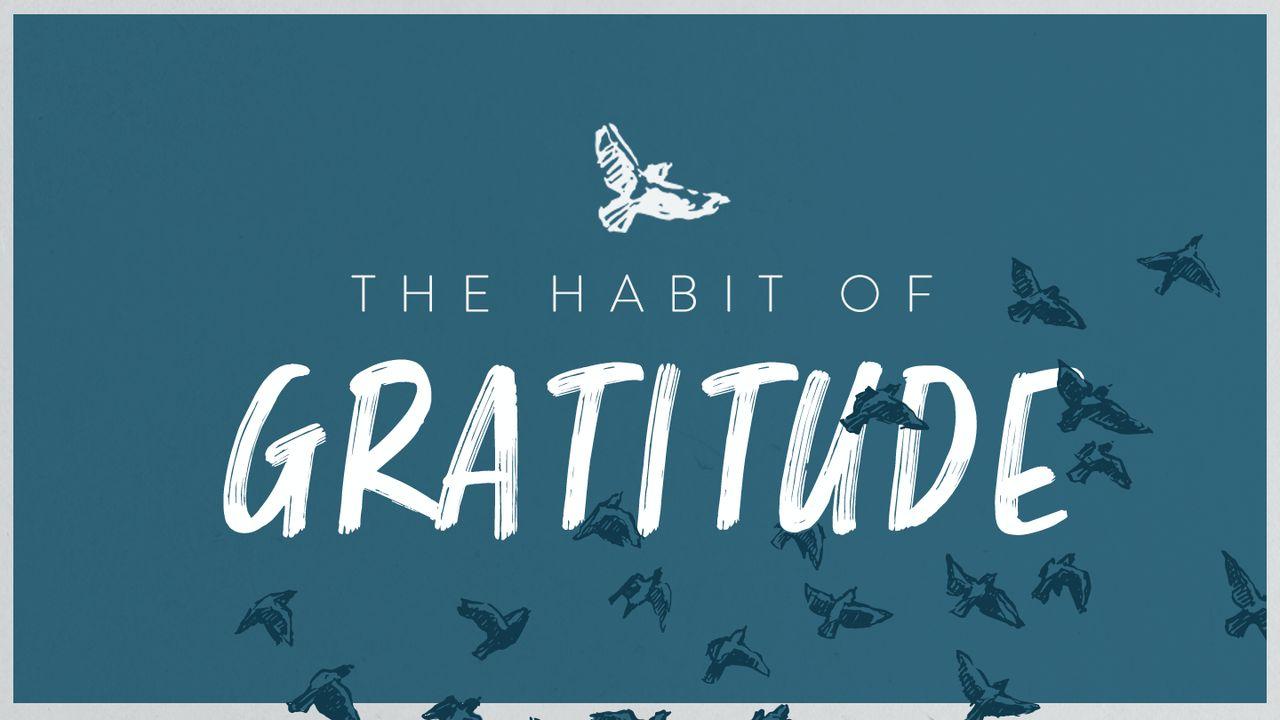The Habit of GratitudeSample

I have a wonderful three-year-old daughter. She says funny things and sweet things, and sassy things too. It feels like every week she learns new skills, sentences, and behaviors. Some words came naturally: mine, now, and I want to. Others took more work. Words like please and thank you need to be encouraged and reinforced.
This is (fallen) human nature. Adults fall prey just like kids do. We feel entitled and dish out orders. No one has to teach us to murmur or criticize; it comes naturally. Our stomach’s growl when they’re hungry and our hearts grumble when they’re disappointed. Instilling gratitude takes work. My daughter needs to be reminded to say, “Thank you,” and so do I. We need to fight the selfish desires inside of us and the ways it comes out of us through our words and behaviors.
Psalm 33 provides a prod to communicate thanksgiving. The psalmist tells us praise and thanksgiving are appropriate for God’s people. Giving thanks to the Lord is fitting because of who He is and what He’s done.
Praise makes sense because God is faithful, just, righteous, and loving (33:4–5). Psalm 33 provides the reason for thanksgiving by walking us through another mural of God’s history, starting with creation (33:4–9) and moving to God’s providence as kingdoms rise or fall (33:10–19).
The Psalm communicates the glory of God as an appeal to praise and thank Him. It’s a call to be moved into worship by what we believe about God. If you believe God is Creator and King over all things, and if you believe He is your help and shield, these weighty truths should lead to thanksgiving and trust.
Thanksgiving might start as an internal matter as you feel grateful, but it must move from the inside out as you give thanks. The more we see God and notice how He’s at work, the more reasons we have to give thanks. Every day there are mercies and blessings fueling a “new song” of thanksgiving.
Seeing God should lead to worshiping Him in thanksgiving. There are many ways we can do this: singing, praying, testimony, storytelling, conversation, and writing it down, to name a few ways.
These various ways of expressing thanksgiving not only allow gratitude to surface, but they also help develop it where it’s lacking. Like my daughter learns the value of thanksgiving and grows in gratitude by verbalizing her “Thank you,” we train both our mouths and our hearts to pursue thanksgiving by saying it. Words not only formulate what we feel but sometimes by writing or saying them they “grow the feeling.” Choosing to say thanks causes us to consider what we’re thankful for, which increases our gratitude.
Start today. Find ways to tell God thank you. Then tell others what you’re thankful for. Don’t settle for a vague feeling of gratitude. Feed it by focusing on specific reasons you’re grateful and giving thanks to God.
Scripture
About this Plan

This seven-day plan outlines simple habits that lead to a life of gratitude. Whether it's training our tongue to say thanks or learning daily habits to increase gratefulness, this plan will boost your awareness of the goodness around you and help you live a life of gratitude.
More
We would like to thank Moody Publishers for providing this plan. For more information, please visit: https://www.moodypublishers.com/the-grumblers-guide-to-giving-thanks/
Related Plans

Two-Year Chronological Bible Reading Plan (First Year-January)

When You Feel Like Roommates: 4 Day Plan to Help You Love (And Like) Your Spouse for Life

Never Alone

The Bible in a Month

The Holy Spirit: God Among Us

Simon Peter's Journey: 'Grace in Failure' (Part 1)

Gospel-Based Conversations to Have With Your Preteen

Everyday Prayers for Christmas

You Say You Believe, but Do You Obey?
